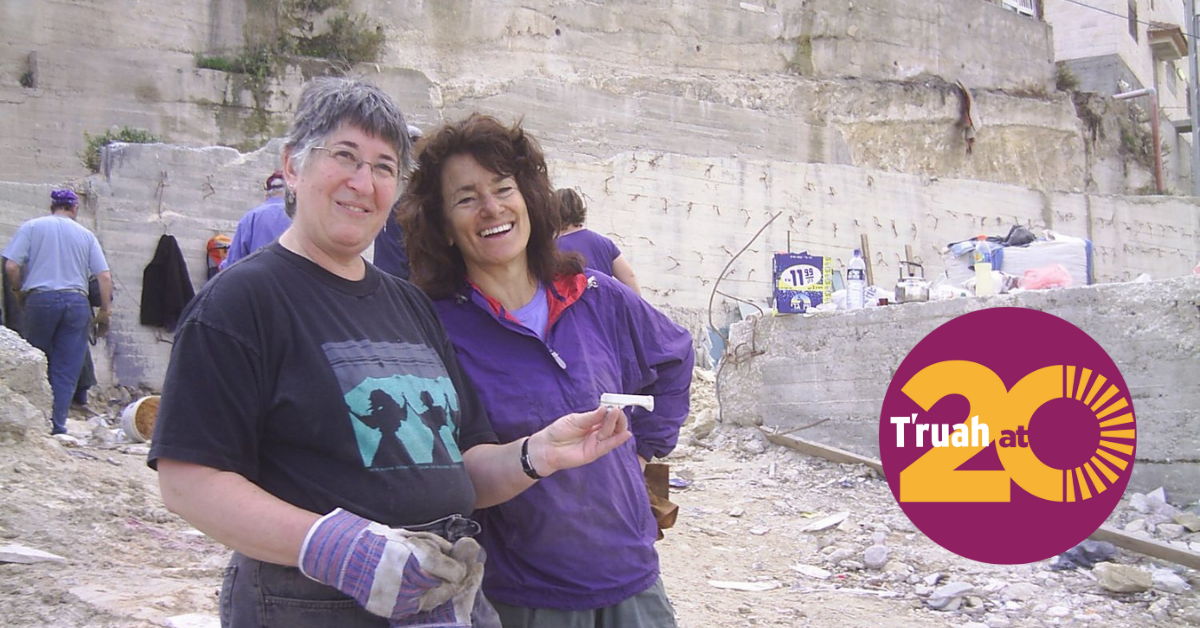Throughout 2022, T’ruah will be sharing reflections from chaverim, staff, board members, students, alumni and more in celebration of our 20th anniversary.
Rabbi Ellen Lippmann is the former Co-Chair of the Board of T’ruah and the founder and rabbi emerita of Kolot Chayeinu/Voices of Our Lives.
I knew Rabbi Arik Ascherman in rabbinical school, and admired him then for his bold experiments in feminist prayer and his insistence on upholding tradition with his own version of tzit-tzit, for his ever-present volume of Talmud on the subway and his urging of activism for justice. He later moved to Israel and became the executive director of Rabbis for Human Rights.
So I was primed when Rabbis for Human Rights-North America (RHR-NA, later T’ruah) began, and Rabbis Gerry Serotta and Brian Walt nabbed me at a CCAR (Central Conference of American Rabbis, a Reform rabbinic leadership organization) convention in 2002.
I said, “Yes.”
Yes, I want to work with you, and yes I know what you are starting, and yes I’ll be there.
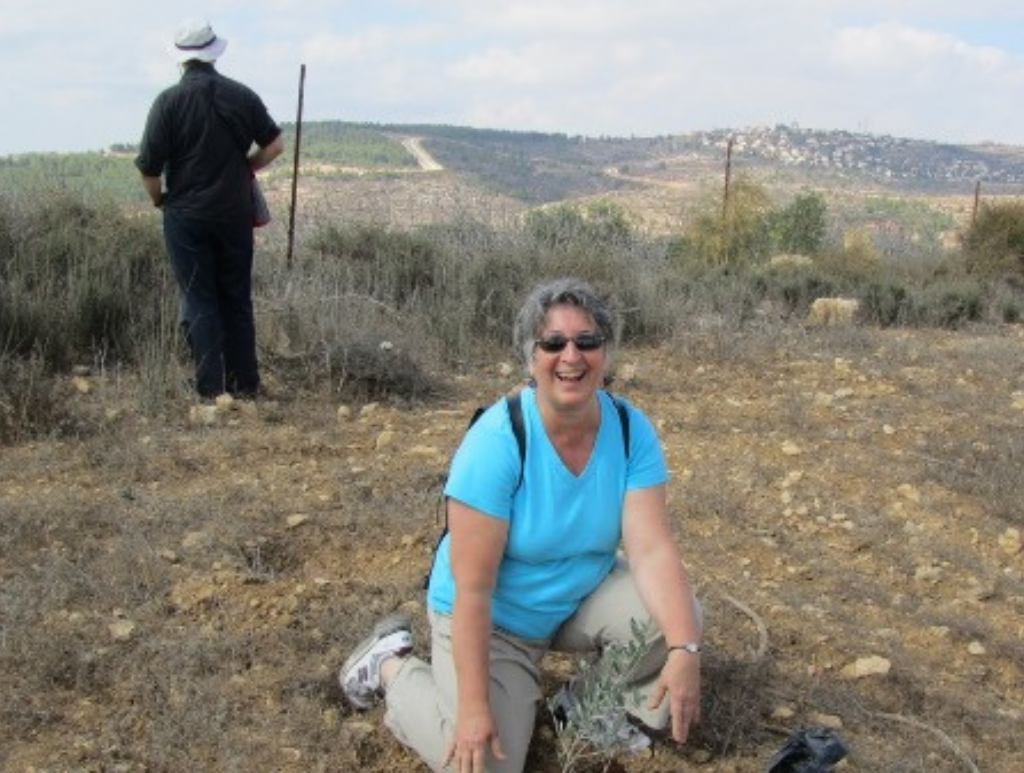
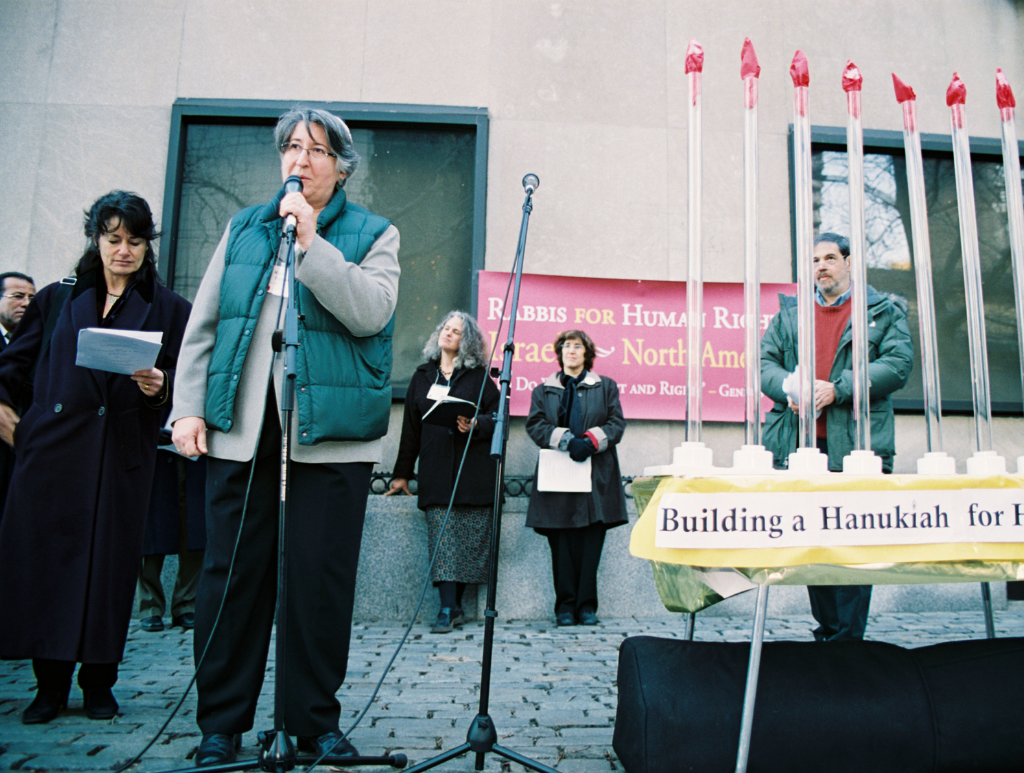
I found myself at Rabbi Arthur Waskow’s table where Arthur and Gerry and Brian and Rabbi Mordechai Liebling – with Rabbi Simkha Weintraub in the background – led the dreaming and the planning.
RHR-NA grew, primarily working on issues of human rights in Israel and Palestine, which is where I met Rabbi Tirzah Firestone as we joined Brian to try and help rebuild the Dari family home near Issawiya. Later Tirzah and I led a trip. I am forever grateful that she said yes when I said, “I am not becoming the chair unless I have a co-chair.” It became a smart way to lead – rotating co-chairs – and it continues to this day.
It was a smart idea for RHR-NA to become its own North American organization and to change its name to T’ruah, one of the smoothest organizational name changes I have ever seen. It enabled us to dedicate energy to human rights concerns and abuses here at home, and to continue to work in Israel and Palestine in a focused way, especially by introducing hundreds of rabbinic students to the realities in the West Bank.
T’ruah has grown and flourished in so many ways.
But what we began in 2002 can still be seen in the ongoing attention to human rights, in the mobilization of rabbis and cantors in campaigns that further justice, in the continuing insistence that we are guided by the wisdom of Jewish text and tradition.
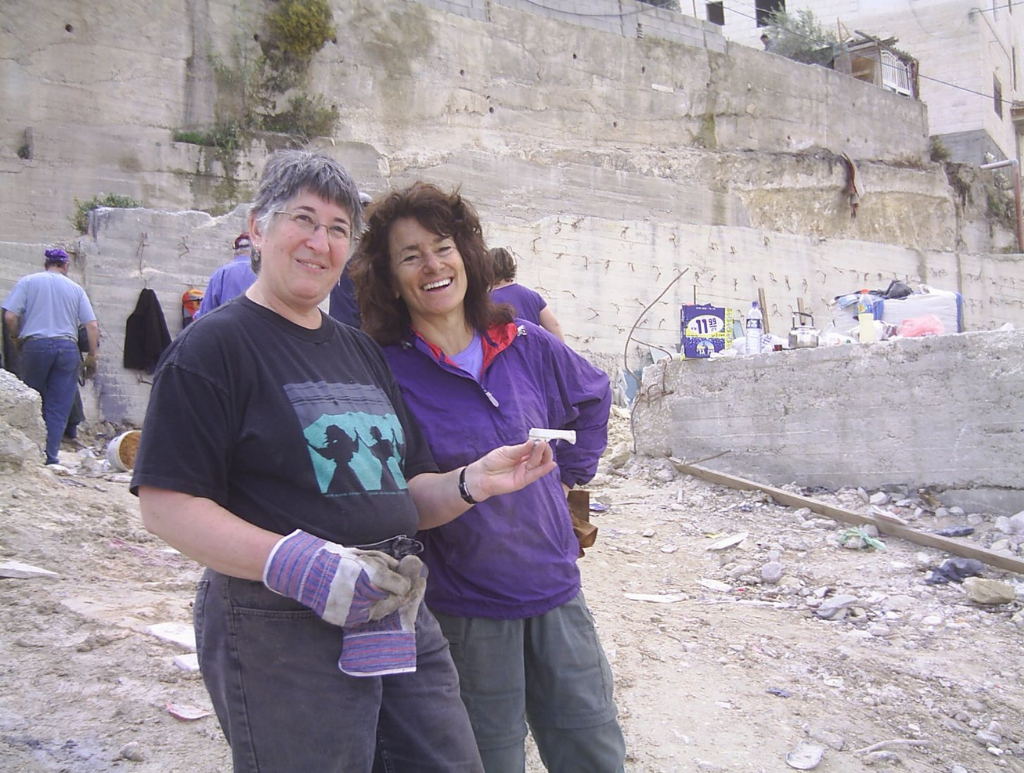
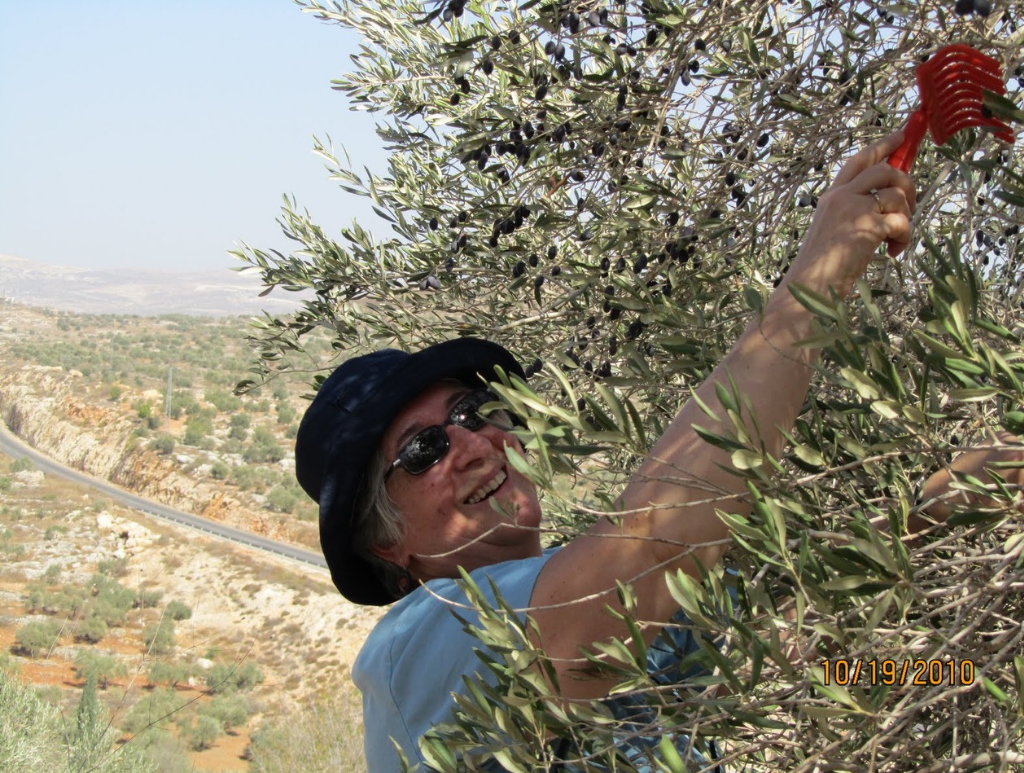
I know there are still T’ruah rabbis reading Talmud on the subway. They are also protesting evictions of Palestinians from their homes in Sheikh Jarrah, and traveling at a moment’s notice to Georgia to support the side of racial justice in the trial of the murderers of Ahmaud Arbery, and standing year after year at the office of Nelson Peltz to urge Wendy’s to join the Fair Food Program begun by the Coalition of Immokalee Workers, and leading public conversations about antisemitism and solidarity and what justice looks like from a Jewish perspective.
Looking back 20 years I stand in awe and gratitude.
T’ruah still does what is just and right — with your support — and because that is true, so do generations of Jewish clergy and activists across the globe.


